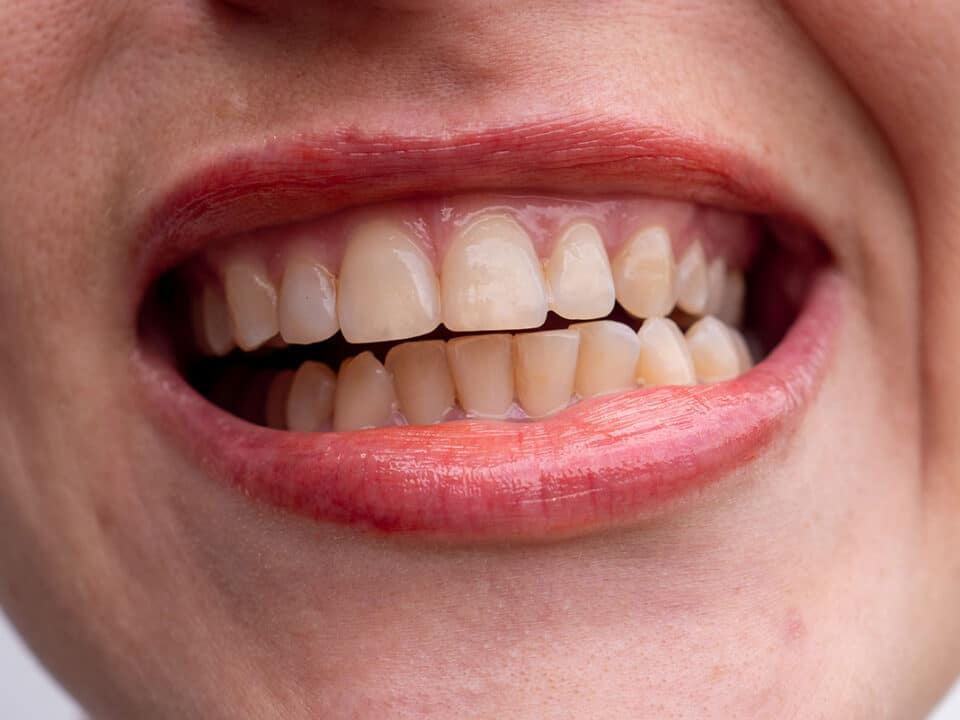We all know that for good oral health, we should be brushing (twice daily), flossing and rinsing our teeth. Ideally, after every meal or beverage other than water we would be rinsing and cleaning our teeth right away. Of course, that would only be realistically possible in our dreams, which gives added importance to finding that extra level or oral care where we can and making the most of it. Let’s talk about one area of an oral health care routine that doesn’t get a lot of chatter; your diet.
What you consume, and the nutritional value of it, can have a sizable affect on how healthy your teeth and gums are. It also drastically increases your odds of maintaining a healthy smile as you age and staying free of unwanted gum disease. The Canadian Dental Association states that a proper, well-balanced diet is good for dental health.
You might be asking yourself how your diet and oral health are linked, so let’s find out.
Research suggests that poor nutrition allows diseases to progress faster and potentially become more severe. This includes your mouth, an area where improper nutrition can lead to gum disease and other complications. It makes sense, because without the proper nutrition for your body, your immune system and your ability to fight back is being compromised. For your mouth this means teeth and gums become increasingly susceptible to not only tooth decay and gum disease, but also the ability to resist infection.
So, now that we know good nutrition is necessary for good health, what about a more direct link to the topic of this discussion; our teeth?
Many foods we consume everyday contain the two biggest threats to our oral health which are sugars and acids. Sugars and acids can lead to tooth decay and gum disease when left coating your teeth for extended periods.
Sugar is well known to be bad for your health in general and your teeth are no different. Sugar is one of the biggest culprits in bad oral health and tooth decay. The bacteria in dental plaque ` tooth damage, meaning vomiting and acid reflux are bad news when they allow the stomach acid to contact your teeth…
What are the effects of sugar and acid on my teeth?
The sugars and acids in foods you consume will cause your tooth enamel to erode in a process called demineralization. This can leave your teeth discoloured and feeling sensitive. Tooth enamel is the protective layer for your teeth, and when missing the dentin of your teeth is exposed. Exposed dentin will cause tooth sensitivity, making hot or cold foods uncomfortable to consume.
Sugars and acids can also lead to gum disease, which comes with a whole host of nasty problems like gum recession and jaw bone erosion.
The verdict? Avoid sugars and acids as much as possible for a healthy mouth. Stay away from candy, chocolates, sugary cereals and drinks or anything else loaded with sugar. Even fruit juices and sports drinks contain high amounts of sugar, as well as acids that will cause damage to your tooth enamel. Acids are everywhere as well, in sodas, fruits, coffee, wine, tomato products and much more. Unfortunately, even carbonated water is acidic, so sorry, no “better bubbles” here. Some acids like citrus fruits are necessary for a balanced diet, so be mindful to rinse your mouth out well afterwards and don’t brush your teeth for at least an hour. Think about it like this. Each sip or bite you take will cause an attack on your enamel lasting roughly twenty minutes. That road lies paved with cavities, enamel decay, gum disease and tooth sensitivity.
Avoiding sugar and acids completely is impossible, so what can I do?
First things first, don’t worry. Even though sugar and acid sounds like doom and gloom for your teeth, the effects are gradual and there are steps you can take to minimize any damage. It is recommended to rinse your mouth out with water after every meal or drink. Brushing your teeth is also a good idea but make sure you haven’t eaten or drank anything acidic for at least an hour before. If you have, then wait at least one hour before brushing your teeth. In the case of acid, you can neutralize it by rinsing your mouth with a glass of water with a tablespoon of baking soda dissolved inside.
Ensure that you practice a healthy oral care routine, which includes brushing and flossing twice daily or after every meal. This will clean away most of the plaque and food debris which can lead to oral disease.
Don’t skip visiting your dentist for teeth cleaning appointments twice a year. This ensure your teeth and mouth are as clean as they can be, as well as lets your dentist inspect your mouth to make sure things are looking good. If they aren’t, catching problems early makes for much easier treatment and recovery. Your dentist has the tools to repair or lessen the effects of enamel decay through fluoride treatments, dental fillings, crowns or caps and dental sealants.
So it’s fairly simple. Practice avoiding the bad foods, rinse or brush after eating when you can’t, and maintain a healthy oral care routine. These simple steps will go a long way to minimizing damage from sugars and acids. Aaaand remember, don’t skip the dentist.
Check us out on Facebook and Twitter for daily information about Oral Health from Martindale Dental, or visit our offices in Hamilton and St. Catharines.
Have more questions?
Please contact us for all inquiries or to book an appointment with one of our convenient clinic locations. We look forward to hearing from you.




